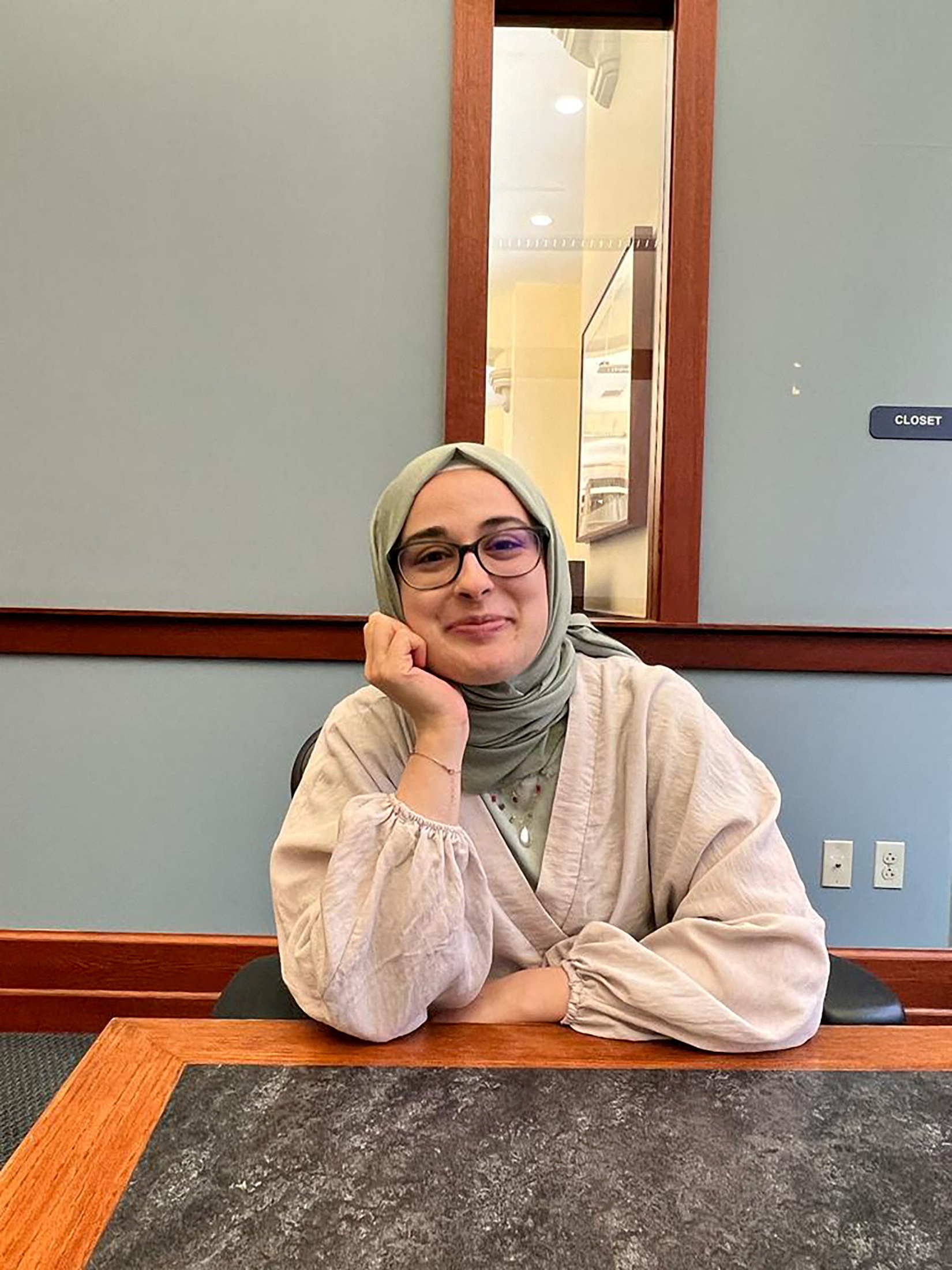Rumeysa Ozturk's attorneys have argued to a Vermont federal court that her arrest by United States Immigration and Customs Enforcement [or ICE] was "unconstitutional", resulting in her detention in a Louisiana immigration facility that Ozturk described as "unsanitary, unsafe, and inhumane".
"There is not discretion, even in immigration law, for the government to violate the Constitution," Jessie Rossman argued during Monday’s hearing, adding her client, a Tufts University PhD student was arrested for co-authoring an essay that slammed her university’s response to pro-Palestine protests.
Rossman told US District Judge William Sessions that her client is not a flight risk, adding on the contrary, Ozturk is eager to return to Tufts to finish her doctorate.
Ozturk's lawyers claimed the government's transfer of her across Massachusetts, New Hampshire, and Vermont before sending her to Louisiana was punitive for her protected speech.
"This was done to chill her speech and send a clear, chilling message to everyone watching," Rossman argued, adding that the Trump administration knew the public was paying attention.
"If you engage in speech that the administration disagrees with, you will be punished."
The Justice Department claims federal courts lack jurisdiction over Ozturk's case due to ICE's initiation of removal proceedings under immigration law.
Justice Department lawyer Michael Drescher said that Ozturk must pursue release via immigration courts.
The judge said he was considering holding an evidentiary hearing in May to examine the circumstances of Ozturk’s arrest and continued detention.

No evidence of anti-Semitic activity
Ozturk trial comes after US State Department found no evidence that the Turkish graduate student engaged in anti-Semitic activity or supported a terrorist organisation.
A March memo from within the Department concluded there were no grounds to revoke Ozturk’s visa based on the Trump administration's claim that she supported the Palestinian resistance group Hamas or engaged in anti-Semitism or violence as alleged by the Department of Homeland Security, the Washington Post reported.
The memo, described to the Post by anonymous sources, said Secretary of State Marco Rubio lacked sufficient grounds to revoke Ozturk’s visa under a provision that allows him to act in defense of the country’s foreign policy interests.
Ozturk, a Fulbright scholar and PhD student in child and human development at Tufts, was detained by masked ICE agents outside her Somerville apartment.
Her detention followed an online targeting by the pro-Israel website Canary Mission, which took aim at her for co-authoring an op-ed in the student newspaper The Tufts Daily in March 2024 criticising the university’s response to Israel's brutal war on Gaza, which has killed more than 62,000 Palestinians.
The memo from DHS, sent by senior official Andre Watson to a State Department counterpart, said that "Ozturk engaged in anti-Israel activism in the wake of the Hamas terrorist attacks on Israelis on October 7, 2023."
Specifically, the memo said she "co-authored an op-ed article" that "called for Tufts to ‘disclose its investments and divest from companies with direct or indirect ties to Israel.’"
According to a copy of a separate memo reviewed by the Post, DHS had recommended Ozturk’s visa be revoked under a provision of the Immigration and Nationality Act that requires the secretary of state to have "reasonable grounds" to believe someone’s presence poses an "adverse policy consequence for the United States."
The memo noted that no US government databases showed any terrorism-related information about Ozturk. A separate internal document also stated that the visa revocation would be "silent," meaning she would not be informed in advance.
Ozturk’s detention comes amid the Trump administration's broader crackdown on pro-Palestine students and academics, including the detention of Palestinian activist and recent Columbia University graduate Mahmoud Khalil and Georgetown University researcher Badar Khan Suri and many others.











![“We have killed enough [in Gaza], we have destroyed enough”](https://d2udx5iz3h7s4h.cloudfront.net/2025/7/31/6733453dcfcbfe8e438ddbd9/image/5a663eb1d20571a0c465edc37bdd73bafb2f54608b1521fb1fff7d59622cde95.jpg?width=256&format=webp&quality=80)



